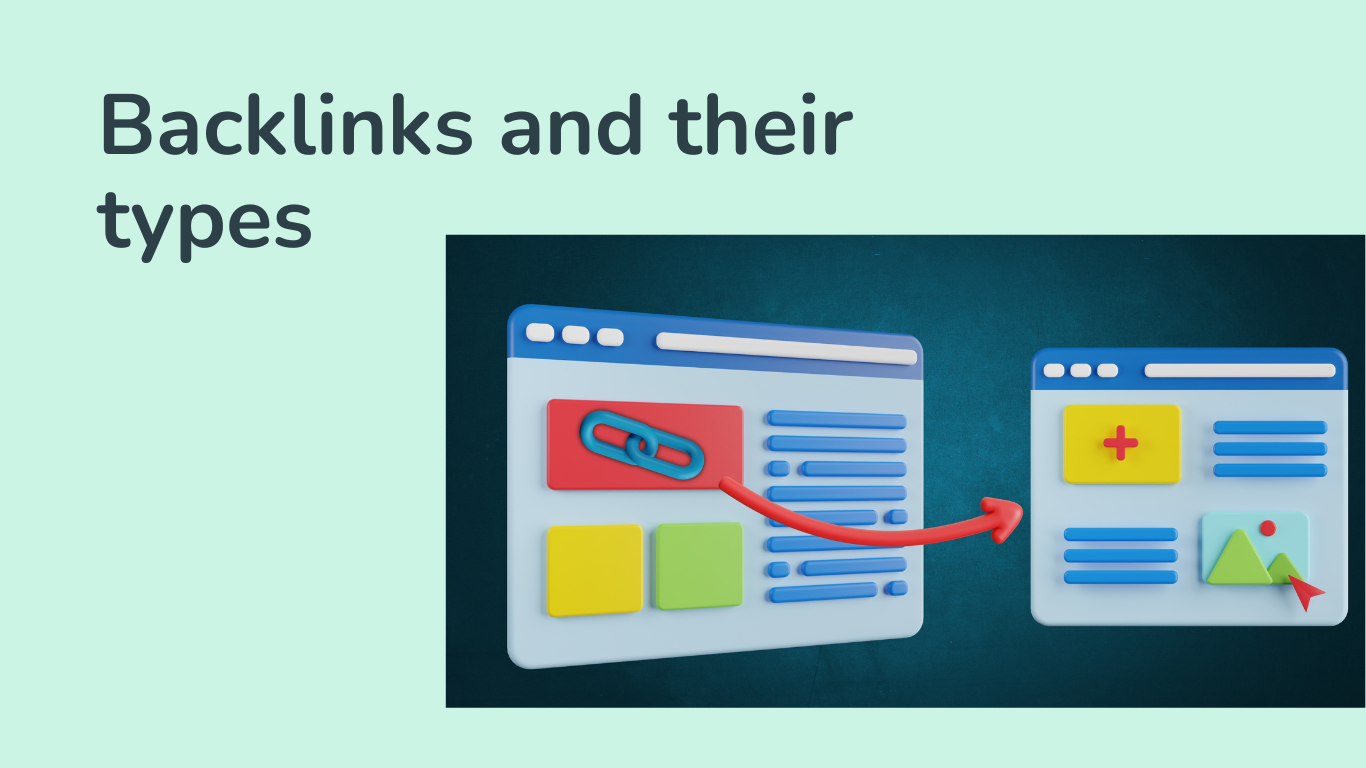In the world of search engine optimization (SEO), backlinks are considered one of the most important factors for determining a website’s ranking on search engine results pages (SERPs). But what exactly are backlinks, and why are they so crucial for SEO success?
What Are Backlinks?
Backlinks, also known as inbound links or external links, are hyperlinks on one website that point to another website. In simpler terms, when one website links to another, it’s like a vote of confidence for the linked website. Search engines like Google interpret backlinks as a signal that the linked website is trustworthy, authoritative, and relevant to the topic or keyword being searched for.
Why Are Backlinks Important?
Backlinks play a crucial role in SEO for several reasons:
1. Improved Search Engine Rankings:
Websites with a high number of quality backlinks tend to rank higher in search engine results pages (SERPs). Google and other search engines consider backlinks as a vote of confidence from other websites, which helps determine the authority and relevance of a webpage.
2. Increased Organic Traffic:
Backlinks from reputable websites can drive referral traffic to your site, leading to increased visibility, brand exposure, and potential customers.
3. Enhanced Domain Authority:
Quality backlinks contribute to the overall authority and trustworthiness of your website’s domain. As your domain authority increases, so does your ability to rank for competitive keywords and attract organic traffic.
4. Faster Indexing:
Search engines discover new content through backlinks. When a website links to your content, search engine crawlers follow the link to your site, which can lead to faster indexing of your webpages.
What Are Do Follow and No Follow Backlinks?
Do follow and no follow are two types of backlinks that determine how search engines should treat the linked website’s authority and relevance.
Do Follow Backlinks:
These are backlinks that pass on link equity and influence search engine rankings. When a website includes a do follow link to another site, it essentially endorses that site and signals to search engines that the linked content is valuable and relevant.
No Follow Backlinks:
These are backlinks that do not pass on link equity and do not influence search engine rankings. Websites use the no follow attribute in their links to signal to search engines that they do not endorse the linked content or want to prevent the flow of link juice to that site.
Types of Backlinks: A Detailed Exploration
1. Editorial Backlinks:
These are backlinks that are naturally earned through high-quality content and editorial discretion. Editorial backlinks are considered the most valuable type of backlink as they come from authoritative websites and are not influenced by monetary transactions.
2. Guest Blogging Backlinks:
It involves writing and publishing articles on other websites in exchange for a backlink to your site. Guest blogging can be an effective way to build backlinks and establish authority in your niche.
3. Resource Page Backlinks:
Resource pages are curated lists of useful websites, tools, or resources related to a specific topic. Getting your website listed on resource pages within your industry can result in valuable backlinks and referral traffic.
4. Broken Link Building:
Broken link building involves finding broken links on other websites and reaching out to the website owner to suggest replacing the broken link with a link to your relevant content. This strategy helps you earn backlinks while providing value to website owners by helping them fix broken links.
5. Social Media Backlinks:
Social media platforms like Facebook, Twitter, and LinkedIn can be valuable sources of backlinks and referral traffic. Sharing your content on social media channels increases its visibility and encourages others to link to it.
6. Directory Backlinks:
Online directories categorize websites based on industry, location, or niche. Submitting your website to reputable online directories can result in backlinks and improved visibility in search engine results.
7. Forum Backlinks:
Participating in online forums and communities related to your industry can help you build relationships with other members and earn backlinks by including links to your content in relevant discussions.
8. Press Release Backlinks:
Issuing press releases about newsworthy events or developments related to your business can lead to backlinks from news outlets and industry publications.
9. Infographic Backlinks:
Creating and sharing informative infographics can attract backlinks from websites looking to use visual content in their articles or blog posts.
10. Video Backlinks:
Publishing videos on platforms like YouTube and Vimeo can result in backlinks when other websites embed your videos in their content.
11. Edu and Gov Backlinks:
Backlinks from educational (.edu) and government (.gov) websites are highly valued by search engines due to their authority and trustworthiness.
12. Competitor Backlinks:
Analyzing your competitors’ backlink profiles can help you identify opportunities to acquire similar backlinks for your own website.
13. Image Backlinks:
Backlinks can also be generated through image sharing platforms and websites where users can link back to your site when using your images.
14. Local Business Backlinks:
Local citations and listings on websites like Yelp, Google My Business, and Yellow Pages can result in backlinks and improved visibility for local businesses.
15. Sponsored and UGC Backlinks:
Sponsored backlinks are those that are paid for or sponsored by a company or individual, while user-generated content (UGC) backlinks come from user-generated content such as forums, comments, and reviews.
How to Analyze the Quality of Backlinks
Not all backlinks are created equal, and it’s essential to analyze the quality of backlinks to ensure they positively impact your website’s SEO. Here are some factors to consider when evaluating backlink quality:
1. Relevance:
Backlinks from websites that are relevant to your industry or niche are more valuable than those from unrelated sites.
2. Authority:
Backlinks from authoritative websites with high domain authority (DA) and page authority (PA) carry more weight and influence search engine rankings.
3. Trustworthiness:
Backlinks from trustworthy sources, such as government institutions, educational institutions, and well-known publications, are more valuable than those from spammy or low-quality sites.
4. Anchor Text:
The anchor text of a backlink should be descriptive and relevant to the linked content. Avoid overly optimized anchor text or keyword stuffing, as it can trigger a penalty from search engines.
5. Naturalness:
Natural backlinks are earned organically through high-quality content and editorial discretion. Avoid artificial link-building schemes or practices that violate search engine guidelines.
6. Diversity:
A diverse backlink profile that includes a variety of sources, types, and anchor texts is more natural and beneficial for SEO than a profile dominated by one type of backlink.
7. Freshness:
Fresh backlinks from recently published content or updated webpages are more valuable than stale or outdated backlinks.
The Best Backlinks and Types to Avoid
While all backlinks contribute to your website’s SEO to some extent, some types of backlinks are more valuable and effective than others. The best backlinks are those that are natural, earned through high-quality content and editorial discretion, and come from authoritative sources relevant to your industry or niche.
On the other hand, there are certain types of backlinks that should be avoided due to their potential to harm your website’s SEO and reputation:
1. Paid Backlinks:
Buying backlinks is against Google’s guidelines and can result in severe penalties, including de-indexing from search engine results pages (SERPs). Avoid paying for backlinks and focus on earning them naturally through high-quality content and ethical link-building practices.
2. Irrelevant Backlinks:
Backlinks from websites that are irrelevant to your industry or niche can harm your website’s SEO and credibility. Avoid pursuing backlinks from unrelated sources and focus on building relationships with relevant websites in your industry.
3. Low-Quality Backlinks:
Backlinks from low-quality, spammy, or irrelevant websites can have a negative impact on your website’s SEO and reputation. Avoid engaging in link schemes or participating in link-building tactics that violate search engine guidelines.
4. Reciprocal Backlinks:
Reciprocal linking, also known as link exchange, involves trading backlinks with other websites. While reciprocal backlinks are not inherently harmful, they should be approached with caution and used sparingly to avoid appearing manipulative to search engines.
5. Automated Backlinks:
Automated link-building tools and software can generate large volumes of low-quality backlinks in a short period. Avoid using automated link-building tactics, as they can result in penalties from search engines and harm your website’s SEO in the long run.
The Role of Backlinks in Search Engine Algorithms
Search engines use complex algorithms to determine the relevance and authority of a website. Backlinks serve as a crucial signal, with quality and diversity playing key roles in influencing search rankings.
Updates in Backlink Strategies: Google Algorithms
1. Google Penguin Update: Shaping Link Quality
The Google Penguin update targets manipulative link-building practices, emphasizing the importance of high-quality, relevant Link building strategies. Websites engaging in spammy practices may face penalties.
2. Google BERT Update: Contextual Relevance
While not directly related to Link building strategies, the BERT update focuses on understanding the context of search queries. This indirectly impacts the importance of contextually relevant Link building strategies.
3. Core Algorithm Updates and Backlinks
Core algorithm updates by search engines often bring changes in how Link building strategies are evaluated. Staying informed about these updates is crucial for adapting backlink strategies.
Common Myths About Backlinks: Debunking Misconceptions
a. More Backlinks Guarantee Better Rankings
Reality: Quality trumps quantity. Focus on acquiring high-quality Link from authoritative sources.
b. All Backlinks Are Equal
Reality: Not all links carry the same weight. Search engines assess the authority and relevance of linking domains.
Future Trends: Backlinks in SEO
As search engine algorithms evolve, the role of backlinks is likely to undergo further changes. The integration of machine learning and enhanced context understanding may shape the future of Link building strategies evaluation.
Conclusion
In conclusion, backlinks are a crucial aspect of SEO that can significantly impact your website’s visibility, authority, and rankings on search engine results pages (SERPs). By understanding the different types of backlinks, analyzing their quality, and focusing on ethical link-building practices, you can improve your website’s SEO performance and drive organic traffic and conversions.
FAQs (Frequently Asked Questions):
1. What are the benefits of backlinks for SEO?
Backlinks can improve search engine rankings, drive organic traffic to your site, enhance domain authority, and increase brand visibility and credibility.
2. How can I earn high-quality backlinks for my website?
You can earn high-quality backlinks by creating valuable, relevant, and shareable content, promoting your content through outreach and networking, participating in guest blogging and industry events, and building relationships with authoritative websites in your niche.
3. What are some tools for analyzing backlinks?
There are several tools available for analyzing backlinks, including Ahrefs, Moz, SEMrush, Majestic, and Google Search Console. These tools can provide insights into your backlink profile, including the number of backlinks, referring domains, anchor text distribution, and more.
4. What should I do if I have low-quality or toxic backlinks pointing to my site?
If you have low-quality or toxic backlinks pointing to your site, you should disavow them using Google’s Disavow Tool, reach out to webmasters to request removal, and focus on building high-quality, natural backlinks through ethical link-building practices.
5. How long does it take to see results from a backlink building campaign?
The timeline for seeing results from a backlink building campaign can vary depending on various factors, including the quality of your content, the authority of your website, the competitiveness of your industry, and the effectiveness of your link-building tactics. In general, it can take several weeks to several months to see noticeable improvements in search engine rankings and organic traffic from backlinks.
6. Are backlinks the only factor that affects SEO rankings?
No, backlinks are just one of many factors that influence SEO rankings. Other important factors include content quality, on-page optimization, website speed and performance, mobile-friendliness, user experience, and technical SEO.
7. What are some common mistakes to avoid when building backlinks?
Some common mistakes to avoid when building backlinks include focusing on quantity over quality, using manipulative or black hat tactics, ignoring relevance and context, neglecting to diversify your backlink profile, and failing to monitor and analyze your backlink profile regularly.




